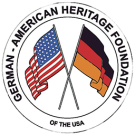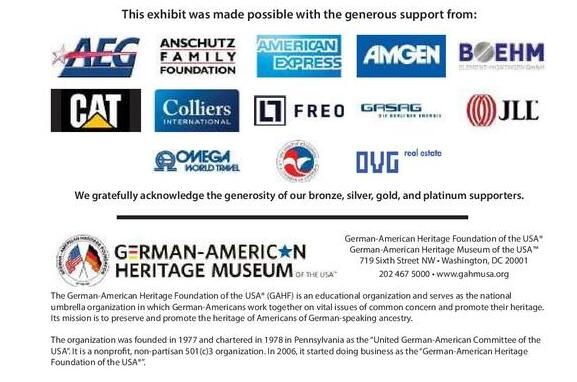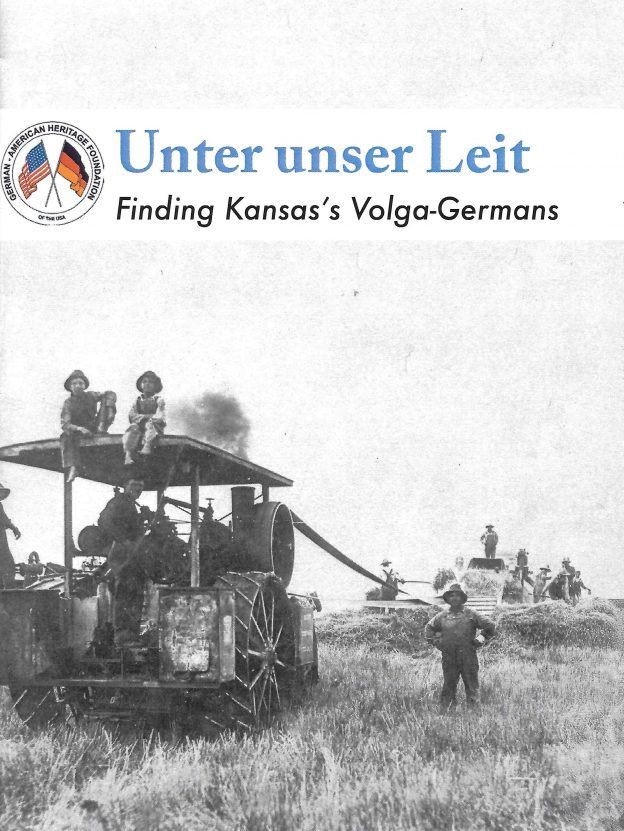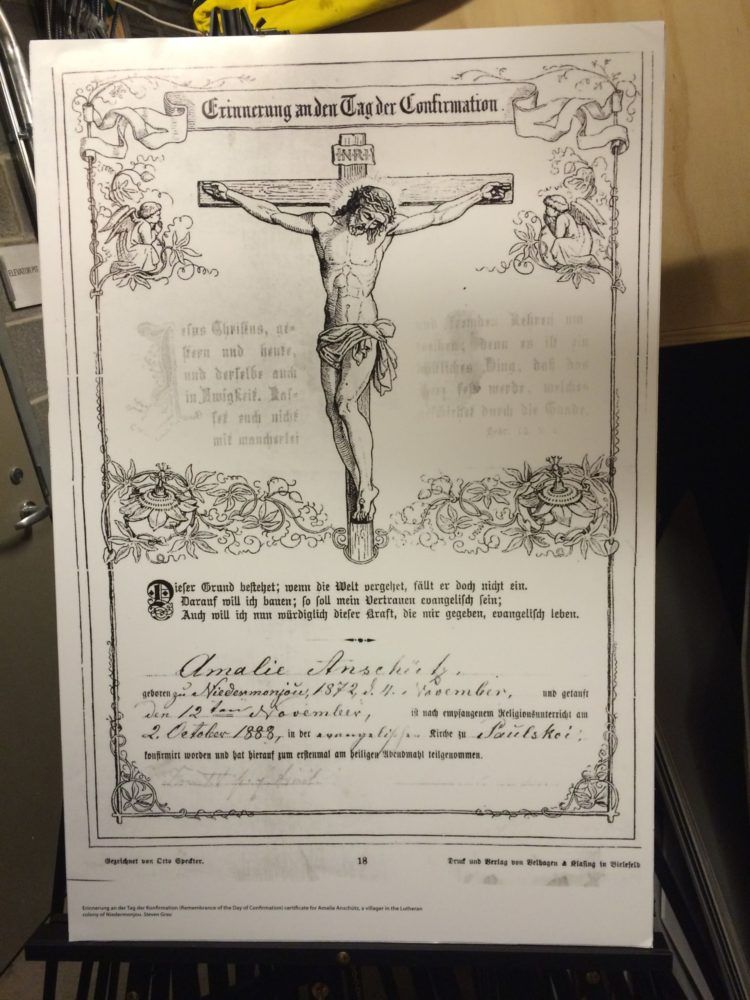Unter Unser Leit –
Finding Kansas’s Volga Germans
German-American Heritage Museum of the USA™

Follow us
2016-2017
Unter Unser Leit – Finding Kansas’s Volga Germans
The Volga-Germans (or Wolgadeutsche in German) are an ethnic group who colonized land along the Volga River in southeastern Russia during the 18th century. Special arrangements with Czarina Catherine the Great allowed for settlers from the German principalities to maintain relative autonomy for the next century. This exhibit was created for and with the support of Mr. Philip Anschutz, the 2016 recipient of the Distinguished German-American of the Year Award.
These original colonists hailed from diverse German regions with differing cultural traditions. However, during their sojourn in Russia, they merged to form a single and unique German culture, distinguishing them both from their Russian neighbors and former German compatriots. An examination of Volga-German immigrants to the U.S. poses a series of unique questions related to the study of German-American heritage and ethnic identity: Who is German, and who is not? Who is an immigrant, and who is a native? And finally, what relevance do these questions have to understanding German-American identity today?
By the turn of the 20th century, more than 100,000 Volga-Germans had immigrated to the United States. Members of this minority group from southwestern Russia settled primarily in the Plains states, including the Dakotas, Nebraska, and Kansas. Their experience farming the arid banks of the Volga River would prove to be an invaluable asset. The social and economic contributions of Volga-German immigrants and their descendants created a legacy that persists to this day.




